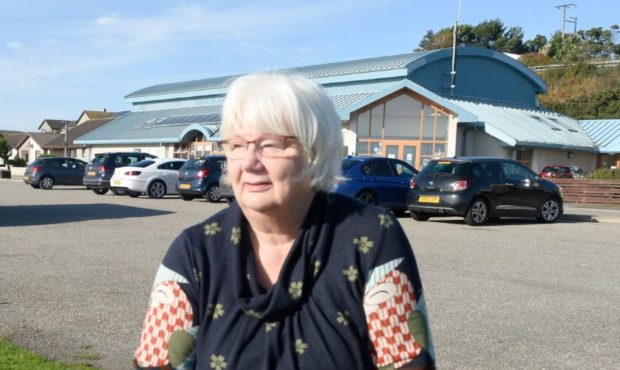An Easter Ross community is preparing for next year’s anticipated influx of staycationers with new facilities.
Planning and funding applications are underway for chemical and grey water waste disposal points at Inver community hall and Seaboard Memorial Hall, Balintore, a recommended destination on the North Coast 500 route.
The hope is that the £115,000 project will win 75% funding from the Rural Tourism Infrastructure Fund.
This season the number of motorhomes in the area quadrupled, says Maureen Ross, a director of Seaboard Memorial Hall.
She said: “We had up to twelve coming through the villages every day, stopping for a coffee and to use the facilities.”
Mrs Ross said there had been pressure points over bins and toilets, and one or two incidents of improper disposal of waste, although the vast majority of visitors were respectful.
“We got there this season, but only just.
“We don’t want it to become a problem, we want to manage tourism before the problems come and not be in a position that many of the NC500 communities find themselves in.
“With Covid it looks like staycations are going to be with us for some years, and more and more people are coming to the east side.
“Our Mermaid of the North sculpture which we put in in 2007 has been attracting thousands of hits on social media, and people are coming just to see it.”
The application includes electric vehicle charging points for Inver and new interpretation and signage within Seaboard.
The community took over Balintore harbour toilets 18 months ago in a community asset transfer from Highland Council.
Mrs Ross said: “They were on the council’s list for closure and that would have been disastrous for the community, harbour users and visitors, so we took them over.
“With extra Covid cleaning measures this year, we are a bit out of pocket.”
If the RTIF funding is successful, the disposal points will be chargeable, and a donation box would be considered for Balintore toilets.
“Nobody should have to spend a fortune to spend a penny,” Mrs Ross said.
She added: “Small rural communities such as ourselves are frequently seen as being self-sufficient and collectively resilient, and that has been proved here in the Seaboard over and over again especially over these past months.
“Nonetheless, rural communities have a smaller pool of human and economic resources and a heavy reliance on volunteers to develop and sustain communities and therefore when it comes to capital investment we do need that financial support.”
